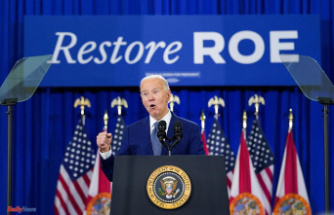In an effort to decrease the record waiting times in Scotland, patients will be offered hospital appointments beyond their local health boards.
According to the Scottish government, it will "eradicate" waiting times of more than two years in outpatients for most specialties by 31 August.
Humza Yousaf, Health Secretary, stated that "resolving long waits is a key goal of our plans to recover the NHS".
Opposition parties were critical of the plan, claiming it lacked ambition.
According to the Scottish Conservatives, it should be "a given" that patients will not wait more than two years to receive any type of NHS treatment. Scottish Labour accuses Mr. Yousaf "moving the goalposts to manipulate the numbers".
The PS1bn that was allocated to the NHS Recovery Plan will fund this latest promise on waiting times.
It was revealed that more than 553,000 people were still waiting to receive inpatient or outpatient treatment as of March 31, which is about 1/10th of the country's population.
He said that he had requested health boards to adopt a focused approach to addressing the waiting lists, now that the NHS was starting to recover from the global crisis.
He said: "We know waiting times have increased as a result the pandemic. That is why we now must focus on treating those who are too patient waiting.
"That is why I am announcing some the most ambitious targets within the UK.
"From talking to patients and clinicians all over the country, I know that waiting for treatment can have a negative impact on your health. That is why we are focusing our efforts to address long waits.
These targets can be used to treat patients in all specialties who have waited.
In most specialties, the goal is to treat patients who have waited.
This strategy will prioritize and target patients who have waited longest for treatment as well as those who need urgent medical care.
Some patients will therefore be offered appointments at the Golden Jubilee University National Hospital, Clydebank, West Dunbartonshire or at National Treatment Centres, as they become operational in the coming year.
This approach also draws on the Centre for Sustainable Delivery. It was created to create new delivery methods that could increase capacity for outpatients, day patients, and inpatients.
This is good news for some specialties, such as orthopaedics. Since surgeons worry that patients waiting for hip or knee replacements may not be considered urgent, they can delay the procedure longer. This will allow them to make their patients a priority.
It will cause concern for others. The NHS is stretched to its limits, so the question is: at what price will these targets be achieved?
Hospitals are already operating at full capacity. Because of a lack of beds, people are spending too much time in emergency rooms. Long-term shortages in staff are common in areas like rehabilitation and diagnostic testing.
Although the health secretary said that the targets were ambitious, he assured me they are achievable and that health boards can deliver. However, the plan does not provide any details on how it will be accomplished.
The announcement was welcomed by Alastair Murray (Chair of the Scottish Committee for Orthopaedics & Trauma).
He stated that he hoped the "targets" set forth would drive ongoing efforts to decrease waiting times for orthopaedic surgeries in Scotland.
On Tuesday, the strain Covid placed on the NHS was also demonstrated when Public Health Scotland data showed that the number of patients awaiting treatment at Scotland's A&E department for more than four hours had risen to their highest ever record.
Craig Hoy, Scottish Conservative's health spokesperson, said that the announcement had caused a lot of confusion. "The scale and severity of the crisis in Scotland's NHS is evident from the fact the health secretary has set such modest targets to reduce them."
He said: "While the pandemic clearly has made matters worse, the failure of the SNP to meet its waiting-time targets predates Covid. This is due to their poor planning of the NHS workforce over many years and their breaking of their promise not to allow delayed discharge.
Mr. Hoy demanded new resources and more staffing.
Jackie Baillie, Scottish Labour's spokesperson for Jackie Baillie, stated that the facts were obvious: high waiting lists; A&E chaos and burnt-out staff.
She said, "Only substantial actions to support staff will save lives. We are not setting the bar lower."
Alex Cole-Hamilton, leader of the Scottish Liberal Democrats, stated that if the Health Secretary has his way, Scotland will be seperated from the rest the UK before these waiting lists have been cleared. This is a fascinating insight into the priorities of the SNP.
Cole-Hamilton said: "It's a proof of how much work it takes to stop people from waiting years for treatment.
"The SNP is wrong to give millions of pounds and top officers to independence when the NHS has been overwhelmed and our doctors are exhausted."












